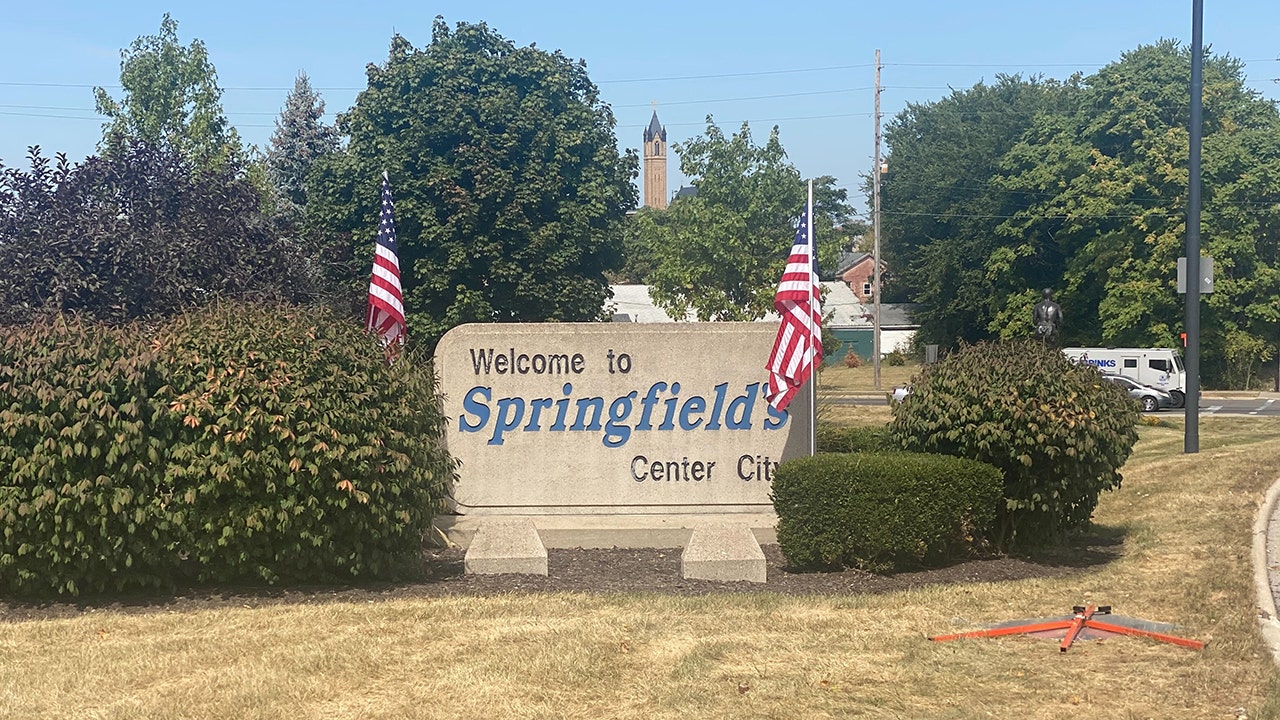Maine
Head Of Maine Senate Faces Ethics Complaint

Maine Senate President Troy Jackson, D-Allagash (Staff Photo by Gregory Rec/Portland Portland Press … [+]
On September 6, the Wednesday after Labor Day, a member of the Maine House of Representatives, John Andrews (R-Paris), filed a formal complaint with the Maine Attorney General and Ethics Commission alleging that one of the state’s most powerful lawmakers, Senate President Troy Jackson (D-Aroostook), either failed to live in his district as is required by law or that he supplied false information to obtain a taxpayer-backed mortgage intended to help low-income homebuyers. In his complaint, Representative Andrews suggests Senator Jackson either committed fraud when applying for a taxpayer-backed loan or he violated the state constitutional requirement that legislators live in their district.
On September 1, one week prior to the filing of Andrews’ complaint, the Maine Wire, a non-profit news service, reported that “mortgage records, insurance records, and court documents” suggest that Senate President Jackson “may have supplied false information to mortgage companies, insurance companies, the State Legislature, and the Maine Ethics Commission.” In response to Representative Andrews’ allegations, Senate President Jackson’s staff has denied any wrongdoing.
“There is no reason to believe that President Jackson is not in compliance with the Maine Constitution, the Ethics Commission or Election Law,” Christine Kirby, communications director for Senator Jackson, said in a statement. In his filed complaint, however, Representative Andrews cited legal documents and courts records that, contrary to Kirby’s statement, provide reason to believe that Jackson was either not in compliance with the terms of the government-backed loan he applied for, or he was in violation of the constitutional requirement that state legislators primarily live in the district they represent.
“If he kept his primary address in Allagash, then he has violated the terms of his FHA mortgage contract,” Steve Robinson, editor-in-chief of the Maine Wire, wrote on September 1. “If he changed his primary address to Augusta, then he has violated his constitutional obligation to reside in his district.”
Of the two potential infractions, submitting a fraudulent mortgage application or living outside of one’s district, recent history suggests the accusation of living out-of-district could be harder to overcome electorally. During the 2022 midterm elections, two state senate candidates running in different parts of North Carolina were accused of living outside of the districts for which they were running. Both of those candidates, one Republican and one Democrat, went on to lose in the November general election.
Contradictory Claims About Powerful Politician’s Primary Residence
In 2019 Senate President Jackson applied for and received a Federal Housing Authority-backed loan on a second home that he purchased in Augusta, a little over two miles away from the state capitol. Senator Jackson, however, claims that Allagash is and has always remained his primary residence. Had Jackson’s FHA loan application stated that the Augusta home is not his primary residence, as the Senate President publicly claims is the case, then Maine’s top state senator would’ve been ineligible for the taxpayer-subsidized loan he received.
Jackson’s spokeswoman recently stated that the Senator’s primary residence “is the address on his license, where he votes, where he receives his homestead property tax exemption and where he clearly intends to make his home.”
Falsely claiming a second home as a primary residence in order to receive a taxpayer-subsidized loan is an infraction that the FBI appears to take seriously based on recent history in Maine. For example Merton Weed Jr., a 50 year old resident of Norway, Maine, was charged earlier this year with loan fraud on an FHA application that included false information. Many are now curious to see if Senate President Jackson will get the same level of scrutiny for what appears to be a confirmed inaccuracy on his FHA loan application.
“No one is above the law in Maine, not even the Senator in the highest elected legislative seat in the state,” Representative Andrews said. “My hope is that these serious issues are addressed legally by the Attorney General, US Attorney and by the Ethics Commision. Maine politics needs more transparency and more accountability – not less.”
Senate President Jackson’s staff did not respond to a request for further comment from this author. When asked by this author whether she or other Democrats in the Maine Legislature are concerned that the Senate President may have fraudulently obtained a taxpayer-backed loan or is in violation of legislative residency requirements, Senator Mattie Daughtry (D) did not respond.
The Portland Press-Herald reported on the allegations against Jackson for the first time in a September 8 article that featured the Senate President’s initial response. Senator Jackson says his FHA loan application incorrectly listed the Augusta house purchased in 2019 as his primary residence. Senate President Jackson, however, claims he’s not responsible for the false information included in his loan application, blaming the error on his mortgage broker.
“I paid him a lot of money,” Jackson told the Press-Herald about his broker. “He filled out the forms and me and my wife signed them.” Senate President Jackson added that he “never really read” the loan application forms and suggested that any error is the fault of his broker.
The broker that Jackson is blaming, however, denies wrongdoing. In a phone interview with the Maine Wire, Senator Jackson’s mortgage broker said that he and his firm have always complied with the law. “I mean, he’s a Senator,” Jackson’s broker told the Maine Wire. “You’d think he would read forms and understand them.”
“We follow the FHA guidelines very closely,” Jackson’s broker added. “We didn’t commit any crimes. We underwrite guidelines, they read the applications and fill them out.”
Now that a formal complaint has been filed by Representative Andrews, the Ethics Commission will look into the matter and report its findings later this fall. A hearing on the matter will take place at the Maine Ethics Commission’s October 25 meeting. The commission’s executive director will then make a decision on whether to conduct a full investigation.

Maine
The formula for growing bigger bucks in Maine is simple

For most Maine deer hunters, a fantasy buck is in their mind’s eye. This is the trophy buck that will tip the tagging station scale in excess of 200 pounds.
We have all seen him in our daydreams, a big-racked, thick-necked bruiser of a deer ghosting his way through a tangled cedar bog as the morning mist mixes with his frosty breath.
Some of us are not die-hard trophy deer hunters. Oh, we’d love to have this fantasy buck in our crosshairs, but a doe or a young deer in the freezer will often do.
After more than 60 years of deer hunting, and after having hung a few on the game pole, I have a perfect record of never having tagged one weighing more than 200 pounds, and I may never.
But this November, I am still skulking about in the deer woods.
For a number of years now, some hunters have lobbied hard for the state to impose antler restrictions in an effort to bring about a more plentiful age class of older, larger bucks. There are some downsides to antler restrictions, and Maine deer biologists as a rule do not support the policy.
There may be another way to grow larger bucks in Maine. It’s simple really: let the young ones grow.
This week the Maine Department of Inland Fisheries and Wildlife issued a press release encouraging deer hunters this fall to take a doe for the freezer and let the young bucks go. The department cited the new permit system that allows licensed hunters to have up to three antlerless deer permits. Filling your freezer with does will let young bucks mature into big bucks.
The MDIF&W pointed out that its biological data show the average yearling buck has three or four antler points, while a 2-year-old buck has six or seven. There’s a difference in weight, too. A yearling averages a dressed weight of 122.5 pounds, while a 2-year-old buck will dress out to about 148.6 pounds.
“While the most significant antler development takes place between the yearling and 2-year-old age classes, it’s not until around year 5 that our Maine bucks begin to approach their peak antler growth potential,” the department said. That’s the age they reach peak weight too, approaching 200 pounds.
There is some deer harvest data to suggest that we may not need antler restrictions to cultivate larger bucks in our whitetail population.
According to MDIF&W, there has been a discernible decline in the harvesting of yearling bucks. It was most pronounced in last fall’s deer harvest data.
It may well be that the deer hunter’s new two-deer option — a buck and a doe — may work to produce larger deer as hunters put a doe in the freezer and then hold out for that buck of a lifetime.
V. Paul Reynolds is of the Northwoods Sporting Journal. He is also a Maine Guide and host of a weekly radio program “Maine Outdoors” heard Sundays at 7 p.m. on The Voice of Maine News-Talk Network.
Maine
Maine heating costs remain flat in November

The average costs of heating fuels have stayed steady since October, Maine sellers report.
Price surveys of companies selling firewood, heating oil, kerosene and propane are published by the state Governor’s Energy Office every other week during the heating season. So far, averages are almost the same as last month, the lowest November cost since 2021.
That’s a change from the previous two Novembers, when prices spiked around this time, causing anxiety and uncertainty for some homeowners. Prices sometimes rose later in the winter before 2021, so there’s still a chance they will climb again.
The average price for heating oil across the state is $3.37 as of Tuesday, two cents less than last month. It’s a few cents less in central, northern and Down East Maine, and a few more in the southern part of the state.
Seasoned firewood remains around an average of $350 per cord, including delivery charges. An average house could use five or six cords per winter.
Kerosene averages $4.23 a unit and propane $3.27, within 10 cents of last month’s prices; costs are also higher in the southern part of the state and lower elsewhere for these fuels.
Among traditional heat sources, firewood is the most efficient, the governor’s office has said. At $350 per cord, firewood costs $15.91 per million Btu, the cheapest option except for the lowest end of natural gas costs.
Next most efficient are wood pellets, at $22.12 per million Btu, followed by heating oil at $24.30, kerosene at $31.33 and propane at $35.80. Electric heat pumps range from $24.03 to $28.99 depending on the unit’s efficiency, according to the office.
For people struggling to afford firewood, some regions are setting up “wood banks,” which offer free wood, like a food pantry for heating supplies. Volunteers hope to have more of them set up across the state in future years.
There’s also still time to apply for state heating aid if you haven’t yet. Local nonprofits or your town office may have aid programs for weatherizing your home or helping with fuel costs, too.
Maine
An innovative approach to literacy launches a new chapter in Maine education

Learning to read is a special experience. There’s a sense of triumph in sounding out that first word and later, a sense of magic that accompanies understanding a story—the moment when squiggles on a page turn into characters and plotlines.
“There’s nothing quite like watching a child fall in love with reading,” said Heather Martin, Maine Department of Education Interdisciplinary Instruction Specialist and former school librarian. “When students learn to master literacy skills, they’re not just learning to read. They’re learning about themselves as a lifelong learner.”
Recognizing literacy as the cornerstone of learning, Gov. Janet Mills has directed $10 million in federal COVID-era funding to go toward evidence-based literacy programs across Maine schools. As a result, these Maine Department of Education (DOE) literacy grants, distributed in early 2024, are reshaping how Maine schools approach reading instruction.

The literacy skills that students develop at an early age often lead them through their educational journey and into adulthood. Photo courtesy of Patra Company Visual Marketing Solutions.
“This initiative ensures every student, regardless of their background, has the opportunity to thrive,” Maine DOE Commissioner Pender Makin said. “We’re not just investing in books and programs. We’re investing in Maine’s future.”
At George E. Jack School in Standish, that investment is transforming how educators approach each student’s unique needs. Instead of following a standard literacy curriculum, teachers analyze individual learning styles and challenges, creating personalized pathways to reading success.
“Some students might need help with orthographic mapping, while others need support with phonological awareness,” said Victoria Sibley, an instructional coach and math interventionist at George E. Jack. “Maine should prioritize literacy in schools because reading is a right, and reading gives kids an opportunity. We need kids to be able to read, so they have the options to be who they want to be.”
The emphasis on evidence-based instructional programs has sparked unprecedented collaboration among teachers and administrators statewide. By analyzing data and assessing specific school needs, educators are making informed decisions about funding allocation, ensuring investments directly benefit students in their unique communities.


Literacy lessons can look different from classroom to classroom, incorporating everything from art to arithmetic. Photo courtesy of Patra Company Visual Marketing Solutions.
Through the AIM Institute for Learning and Research©, the Maine DOE has developed comprehensive professional development modules ranging from three to 11 hours in length. These modules cover essential topics from the Science of Reading to specialized instruction for English language learners, giving educators the tools they need to reach every student.
“A strong foundation in literacy is essential for our students’ success across all subjects,” said Beth Lambert, Maine DOE’s Chief Teaching and Learning Officer. “Through this grant, we’re creating a collaborative environment where educators can grow and innovate, ensuring every child in Maine has the opportunity to thrive as a reader and writer.”
The response from Maine’s education community has been overwhelming. Nearly 900 educators—including teachers, administrators, educational technicians and specialists—have completed more than 22,000 hours of professional learning through these modules. Federal emergency relief funding provided stipends to teachers who completed these vital literacy modules during the summer months, recognizing their dedication to professional growth.
Even outside of the Maine Literacy Grant, the Maine DOE’s Interdisciplinary Instruction team has continued to expand the initiative’s reach by developing online courses focused on inclusive learning. These courses address crucial topics like the neuroscience of the developing brain, strategies for engaging reluctant learners and methods for fostering critical thinking skills through literacy.


Letter recognition is one of the first skills in literacy that a student will learn. Photo courtesy of Patra Company Visual Marketing Solutions.
They’ve also invested in a four-workshop series integrating literacy through innovative pathways, including applied science and mapmaking. Available both in-person and virtually, these workshops ensure educators across Maine’s diverse geography can access vital professional development opportunities.
This initiative’s comprehensive approach, combining substantial financial support, intensive professional development and evidence-based practices, positions Maine as a leader in literacy education. In fact, Maine has some of the highest literacy rates for students in the country. As educators collaborate and innovate, they’re not just teaching reading and writing; they’re opening doors to lifelong learning and success for every Maine student.
“Through these grants and professional development opportunities, we’re building a foundation for the future of Maine education,” Commissioner Makin said. “When we invest in literacy, we invest in possibilities for our students, our schools and our state.”
The Maine Literacy Grant is a part of Maine’s Whole Student Pandemic Response and was made possible by federal emergency relief funding. For more information about Maine’s literacy initiatives and how the Maine DOE used federal funding to support the whole student, visit the Maine DOE website


-

 Business1 week ago
Business1 week agoRef needs glasses? Not anymore. Lasik company offers free procedures for referees
-

 News1 week ago
News1 week agoHerbert Smith Freehills to merge with US-based law firm Kramer Levin
-
/cdn.vox-cdn.com/uploads/chorus_asset/file/25724877/Super_Nintendo_World.png)
/cdn.vox-cdn.com/uploads/chorus_asset/file/25724877/Super_Nintendo_World.png) Technology1 week ago
Technology1 week agoThe next Nintendo Direct is all about Super Nintendo World’s Donkey Kong Country
-
Business6 days ago
Column: OpenAI just scored a huge victory in a copyright case … or did it?
-

 Health6 days ago
Health6 days agoBird flu leaves teen in critical condition after country's first reported case
-

 Business2 days ago
Business2 days agoColumn: Molly White's message for journalists going freelance — be ready for the pitfalls
-

 Technology1 week ago
Technology1 week agoHow a researcher hacked ChatGPT's memory to expose a major security flaw
-
Politics1 week ago
Editorial: Abortion was on ballots across the country in this election. The results are encouraging




















